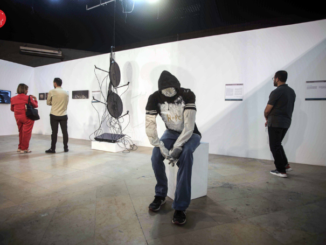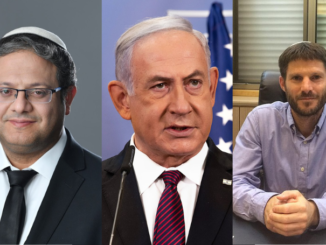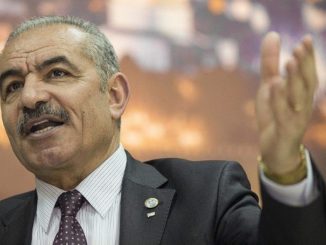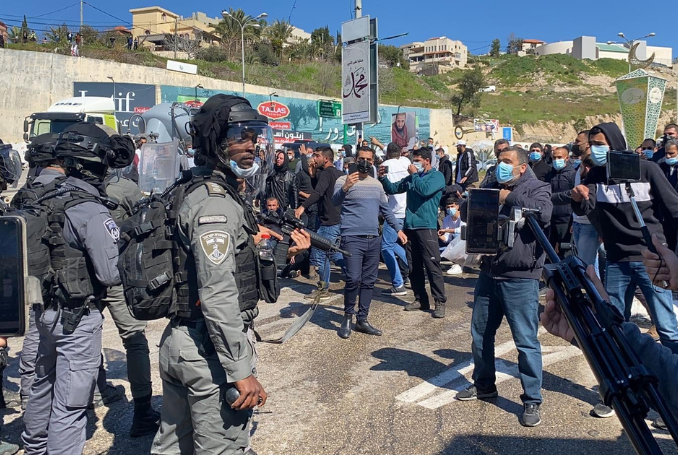
By Ilan Pappe – The Palestine Chronicle 
The best way of ending the intensifying criminal activities among 48 Arab communities is directly linked to the overall decolonization and liberation of historical Palestine.
Far away from any global media coverage, a community of Palestinians, which, in one of my books, I called ‘The Forgotten Palestinians’, is facing a new form of ethnic cleansing coupled with the daily killing of its people.
An important reminder: The Palestinian minority in Israel, known as the 48 Arabs, now constitute nearly 21 percent of the Israeli population (1,900,000).
This number does not include the Palestinians living in East Jerusalem and the Golan Heights: both areas were illegally annexed to the Jewish state in 1980 and 1981.
The 48 Arabs were the ones that were either expelled in the 1948 ethnic cleansing but remained inside what became the state of Israel – the majority of them – or were living in the 100 villages that were spared during the ethnic cleansing, which destroyed 531 villages.
They remained under strict military rule until 1966, which, one year later, was experienced by the people of the West Bank and the Gaza Strip.
The military rule imposed on the 1948 Arabs was simply swapped with another: an apartheid regime that discriminated against them and violated their basic civic and human rights.
Origins
Since the start of 2023, nearly 160 Palestinians, many of them young people, were killed by criminal gangs terrorizing this community.
That means that 20 Palestinians die each month in such a horrific way – imagine the murder of 680 citizens in Britain, every month, by criminal gangs.
The Israeli police and security service, who are able to catch Palestinian boys throwing stones within minutes and Palestine freedom fighters within a day or two – until today claim they can not lay their hands on these gangs.
In actuality, the names of the gang leaders and those carrying the killings are known to everyone. And the reason why they are allowed such a license to kill is also quite known in Israel.
Many of these criminals are previous collaborators with the Israeli Security Services (Shin Bet) from the West Bank and the Gaza Strip, who were taken out of the occupied territories after the signing of the Oslo agreements.
These collaborators-turned-criminals have free access to weapons and no one tries to stop them – although, as I previously stated, everyone knows who they are.
Their main business is extorting ‘protection’ money and hijacking tenders for public works and enterprises. Anyone who refuses to obey their rules is in danger of being killed. Of course, some of the violence is an outcome of infighting among these gangs as well.
There is, however, another side of the problem.
In a society that – due to the Israeli apartheid system – registers high levels of unemployment and is constantly denied resources and spaces to invest in youth employment and culture, young people are attracted to these gangs.
In the West Bank and the Gaza Strip, many such young people made a moral choice of joining the armed resistance instead of succumbing to a life of crime – similar to what many young black South Africans did during the anti-Apartheid struggle. But this is not an option for the young people of the 48 Arabs.
They are still beholden to a collective, and understandable, strategic decision by the 48 Arab community not to be engaged in an armed struggle for liberation inside Israel itself.
Such an option – that of armed struggle – for the time being, does not exist; thus the attraction of being part of ruthless gangs.
Palestinians, African-Americans
This is similar to the situation that unfolded in the United States during the heyday of the Black Panthers and other African-American political movements, which terrified the FBI as possible threats to white supremacy in the country.
Outlawing the movements, arresting and killing its members, along with opening the road for hard drugs to enter the inner cities, created a gang culture among African Americans.
Like in Israel, gangs are a fact of life. And, like in Israel, the US in the post-Reagan period (after these sinister policies were enacted), had to find a solution.
During the Clinton era, the solution was to overfund the police so as to create a human barrier between the ‘normative citizens’ and gang-stricken areas.
Lip service was paid to the idea of expanding the infrastructure for community services, but the neo-liberal American capitalist system would have never enabled such an investment, which might have provided some cure for the problem.
In Israel, lip service was also paid by liberal Zionist governments – promising to invest in such infrastructures. In practice, very little has been done.
On the contrary, poverty and unemployment increased under these ‘liberal’ governments, and it was, indeed, during their watch that the gang culture began to develop, reaching its current form.
The Wider Strategy
Under the current right-wing Netanyahu government, different problems arose, which require urgent international attention and reaction.
First, the current Israeli policy is part of a wider strategy, which has been in place since the inception of Zionism in Palestine: producing unsustainable life conditions for the Palestinians in order to obtain as much of historical Palestine as possible, with as few Palestinians in it as possible.
This strategy represents another form of ethnic cleansing, which responds to the overall logic of the Zionist settler colonial project.
Previous governments also indirectly employed such a policy, but not so openly and not so intensively.
In fact, under the current government, the main authority responsible for tackling crime is run by a criminal himself: Itamar Ben-Gvir.
The far-right minister of National Security is a disciple of Meir Kahane, the racist politician who advocated the forced transfer of all Palestinians. He is also an admirer of Baruch Goldstein, who massacred Palestinian Muslims while kneeling down for prayer at the Ibrahimi Mosque in Al-Khalil (Hebron), in 1994.
Implosion and Co-existence
The best way of ending the intensifying criminal activities among 48 Arab communities is directly linked to the overall decolonization and liberation of historical Palestine.
The clear and irreversible Israeli march into its own dystopian future will eventually bring its implosion from within. This, however, can be a long, protracted process.
Therefore, it is important to alert the world to the overall situation of the 48 Arabs, which international organizations tend to ignore based on the erroneous assumption that it is an internal Israeli affair.
Like any other indigenous population ruled and oppressed by a settler colonial regime, the situation of the 48 Arabs should be part and parcel of the agenda of anyone concerned with international law and human rights.
And despite the segregationist policies of Israel, gang violence will soon spill into the Jewish areas.
But all in all, it is part of the violence directed at the Palestinians, brilliantly described by Rashid Kahlid in his book ‘The Hundred Years of the War on Palestine.’
This abhorring violence has been directed against a population that, before the establishment of Israel, was one of the least violent societies on earth. This claim can be easily demonstrated by the genuine coexistence between Muslims, Christians, and Jews before 1948.
This historical trajectory of co-existence suggests that the decolonization process, which will surely happen, will be a more peaceful affair than some of the unfortunate chapters of decolonization in the past.
Until then, we should do all we can to pressure Israel to respect the basic human rights of Palestinians, by every means at our disposal.
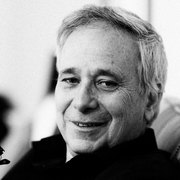
– Ilan Pappé is a professor at the University of Exeter. He was formerly a senior lecturer in political science at the University of Haifa. He is the author of The Ethnic Cleansing of Palestine, The Modern Middle East, A History of Modern Palestine: One Land, Two Peoples, and Ten Myths about Israel. He is the co-editor, with Ramzy Baroud of ‘Our Vision for Liberation.’ Pappé is described as one of Israel’s ‘New Historians’ who, since the release of pertinent British and Israeli government documents in the early 1980s, have been rewriting the history of Israel’s creation in 1948. He contributed this article to The Palestine Chronicle.

